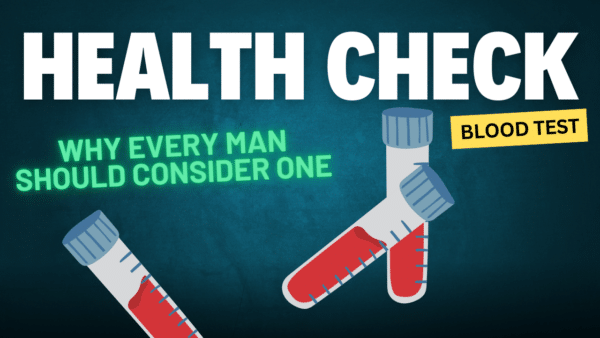Introduction:
Are you aware of what’s in your bloodstream? A nutritional blood test panel can tell you much more than just your cholesterol and glucose levels; it measures nutrient concentrations throughout your body to give an overview of overall health and wellness. By understanding how nutrients impact our wellbeing, we can make informed decisions about diet and lifestyle to enhance it further.
In this article, we’ll examine why getting a nutritional blood test panel is essential for optimal health. We’ll define what a nutritional blood test panel measures and how it can benefit you. Additionally, we’ll answer common questions about the test and provide tips on interpreting its results.
Why Get a Nutritional Blood Test Panel?
A nutritional blood test panel is a type of test that measures the levels of essential vitamins, minerals, and other nutrients in your blood. These measurements can be used to diagnose nutrient deficiencies, identify imbalances, and monitor the success of dietary and supplement interventions.
Here are some reasons why you might want to consider getting a nutritional blood test panel:
Identification of Nutrient Deficiencies: A nutritional blood test panel can identify any nutritional deficiencies that could be impacting your health. Low vitamin D levels, for instance, could cause weak bones and an increased risk of fractures; an iron deficiency might result in fatigue, weakness, or shortness of breath.
Optimizing Your Diet and Supplements: By understanding your nutrient levels, you can tailor your diet and supplement regimen to ensure you get all necessary vitamins and minerals. For instance, if you’re deficient in vitamin B12, then more animal products or taking a supplement might be needed to maintain optimal levels.
Personalized Nutrition: A nutritional blood test panel can help tailor your nutrition plan to meet individual needs. For instance, if a genetic mutation hinders folate absorption, you may need to consume more folate-rich foods or take a supplement with specific forms of folate.
Monitoring Nutrient Status: If you have a medical condition that interferes with nutrient absorption or metabolism, a nutritional blood test panel can help keep track of your nutrient status over time. This information allows both you and your healthcare provider to adjust treatment plans as necessary.
What Does a Nutritional Blood Test Panel Measure?
A nutritional blood test panel analyzes your body for various nutrients, such as:
- Vitamins: Vitamin A, B1, B2, B3, B5, B6, B9, B12; C, D, E & K
- Minerals: Calcium, copper, iron, magnesium, potassium, selenium and zinc.
- Fatty Acids: Omega 3s and 6s.
- Amino Acids: Both essential and non-essential amino acids.
- Antioxidants: Coenzyme Q10 and glutathione.
How to Interpret Nutritional Blood Test Panel Results?
Interpreting nutritional blood test panel results can be tricky due to their variable nature; nutrient levels may differ based on age, sexual history, and more. Working with a qualified healthcare provider who can interpret your results and create a tailored nutrition plan is paramount for successful nutrition management.
Here are some tips for deciphering your nutritional blood test panel results:
Searching for Optimal Levels: Nutritional optimal levels can vary based on age, sex, and other factors. Your healthcare provider can assist in identifying the ideal levels that are right for you based on your individual needs and health status.
Pay Attention to Deficiencies: If your results indicate you are deficient in a particular nutrient, it is essential to address this through dietary changes or supplements. Your healthcare provider can assist you in creating an action plan to address any deficiencies.
Consider Imbalances: Nutritional imbalances can have an adverse effect on your health. For instance, an imbalance of omega 3 and 6 fatty acids could increase inflammation within the body. Your healthcare provider can assist in recognizing any imbalances and creating a plan to rectify them.
Avoid Overdoing Supplements: While taking supplements can help address nutrient deficiencies, it’s essential not to overdose. Excess amounts of certain nutrients can have toxic effects and adverse reactions on your health.
Take the Long View: Nutrition is only part of the picture when it comes to overall health. When creating a personalized nutrition plan, your healthcare provider will take into account all aspects of your well-being including other medical conditions and lifestyle habits.
FAQ:
Q. How Often Should I Get a Nutritional Blood Test Panel?
Your healthcare provider can determine how often nutritional blood tests should be done depending on your individual health status and needs. They also have the expertise to advise you as to when this testing should occur.
Q. Do I Need to Fast Before a Nutritional Blood Test Panel?
Fasting may be necessary before taking a nutritional blood test panel. Your healthcare provider will provide specific instructions prior to the test.
Q. How much does a nutritional blood test panel cost?
The cost of a nutritional blood test panel varies based on the test type and your insurance coverage. Your healthcare provider can provide more precise cost information.
Conclusion:
A nutritional blood test panel is essential to understanding your overall health and well-being. You can identify deficiencies and imbalances by measuring nutrient levels and creating a personalized nutrition plan tailored specifically for you. Working with an experienced healthcare provider is critical in interpreting results and creating the correct plan. Don’t neglect proper nutrition – take the first step today toward optimizing your wellbeing with a nutritional blood test panel! You can get a specific nutrition panel without a doctor’s note from Walk-In Lab.






